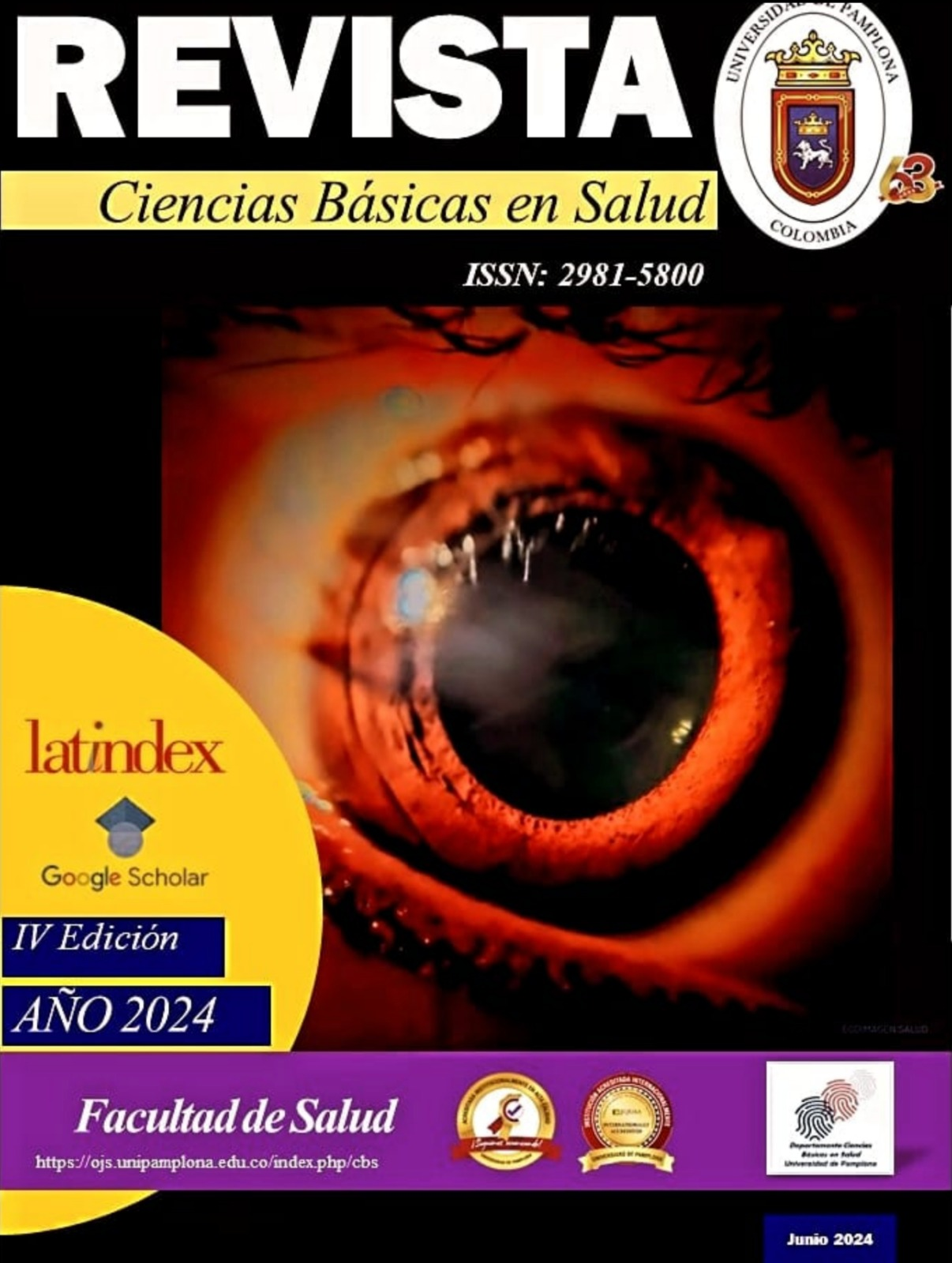Prevalencia del síndrome de intestino irritable en estudiantes de medicina del área clínica de la Universidad de Pamplona Colombia
DOI:
https://doi.org/10.24054/cbs.v2i2.2928Palabras clave:
ansiedad, estrés, estudiantes, medicina, síndrome intestino irritableResumen
Introducción: El Síndrome de Intestino Irritable es una enfermedad gastrointestinal crónica que se caracteriza por dolor y sensación de distensión abdominal acompañada de alteraciones como estreñimiento, diarrea o ambas sin una causa orgánica que lo justifique, afecta la calidad de vida y la actividad laboral del paciente, está relacionado con situaciones de estrés crónico, presencia de alteraciones emocionales, depresión, neurosis, ansiedad o dificultad para adaptarse a nuevas circunstancias o situaciones del diario vivir como rutinas, rol académico o laboral. Por lo anterior se plantea como objetivo del estudio, establecer la prevalencia del Síndrome de Intestino Irritable en estudiantes de Medicina del área clínica de la Universidad de Pamplona, la metodología se plantea a través de un enfoque cuantitativo, de tipo descriptivo, prospectivo, la muestra incluida fueron 165 estudiantes de medicina matriculados en los semestres entre sexto y decimo semestre, correspondientes al área clínica. Se obtuvieron como resultados, que existe una fuerte asociación entre ser mujer y tener Síndrome de Intestino Irritable, así como tener síntomas de ansiedad y depresión asociados a la carga académica.
Descargas
Referencias
Alvarado, J., Otero, W., Jaramillo Santos, MA, Roa, PA, Bridges, GA, Jiménez, AM, ... & Sabbagh, L. (2015). Guía de práctica clínica para el diagnóstico y tratamiento del síndrome del intestino irritable en población adulta. Revista Colombiana de Gastroenterología, 30, 43-56.
Enck, P., Qasim Aziz, G. B., Farmer, A. D., Fukudo, S., Mayer, E. A., Niesler, B., ... & Spiller, R. C. (2016). Síndrome del intestino irritable. Nat Rev Dis Primers, 2, 16014.
Domingo, J. J. S. (2022). Síndrome del intestino irritable. Medicina Clínica, 158(2), 76-81.
Ganfornina Andrades, A. (2017). El estrés y el sistema digestivo.
Elsenbruch, S. y Orr, WC (2001). Los pacientes con SII con predominio de diarrea y estreñimiento difieren en las respuestas autonómicas y de cortisol posprandial. Diario oficial del Colegio Americano de Gastroenterología | ACG, 96(2), 460-466.
Gómez, O. N. G., & Liao, S. M. H. (2020). Factores psicosociales asociados al síndrome de intestino irritable en estudiantes de medicina. Ciencia e Investigación Medico Estudiantil Latinoamericana, 25(2).
Hernández, D. B. P., Ovalle, L. F. P., Valenzuela, L. M. M., & Mejía, A. C. (2023). Trastornos de la interacción cerebro-intestino (trastornos funcionales digestivos), racionalidad para el uso de la neuro modulación. Revista Colombiana de Gastroenterología, 38(2), 180-187.
Hernández Zúñiga, M. F., Giraldo López, F. Y., & Rodas Marín, P. A. (2023). Relación entre el uso de adaptógenos en el manejo del estrés y el tratamiento del síndrome de intestino irritable en mujeres.
Ibarra, A. A. M., & Verdugo, Y. (2021). Síndrome del intestino irritable: una revisión narrativa. Revista de Nutrición Clínica y Metabolismo, 4(4).
Mariños-Llajaruna, H. R., & Chafloque-Chafloque, A. (2019). Asociación entre el Síndrome de Intestino Irritable y la ansiedad y depresión en pacientes atendidos en el Hospital Regional Docente de Trujillo. Revista médica de Trujillo, 14(4).
Mearin, F., Ciriza, C., Mínguez, M., Rey, E., Mascort, J. J., Peña, E., ... & Júdez, J. (2017). Guía de práctica clínica: síndrome del intestino irritable con estreñimiento y estreñimiento funcional en adultos: concepto, diagnóstico y continuidad asistencial. (Parte 1 de 2) SEMERGEN-Medicina de Familia, 43(1), 43-56.
Lovo, J. (2020). Síndrome de burnout: Un problema moderno. Entorno, (70), 110-120.
Karantanos, T., Markoutsaki, T., Gazouli, M., Anagnou, N. P., & Karamanolis, D. G. (2010). Current insights into the pathophysiology of irritable bowel syndrome. Gut Pathogens, 2, 1-8.
Otero, W., & Gómez, M. (2005). Síndrome de intestino irritable. Revista Colombiana de Gastroenterología, 20(4), 72-83.
Pontet, Y., & Olano, C. (2021). Prevalencia de síndrome de intestino irritable en América Latina. Revista de Gastroenterología del Perú, 41(3), 144-149.
Ramirez, E. E., Hernández, A. J. M., & López, J. R. B. (2021). Síndrome de Intestino Irritable como manifestación clínica del estrés en estudiantes de medicina.
Rodríguez Garza, M. D. R., Sanmiguel Salazar, M. F., Muñoz, A., & Rodríguez Rodríguez, C. E. (2014). El estrés en estudiantes de medicina al inicio y final de su formación académica. Revista iberoamericana de educación.
Silva, L. F. R., Diaz, M. L. P., Acuña, D. M. G., & García, J. Y. M. (sin año). Síndrome De Intestino Irritable Y Trastornos De Ansiedad Y Depresión Bogotá Colombia.
Descargas
Publicado
Número
Sección
Licencia
Derechos de autor 2024 Revista Ciencias Básicas en Salud

Esta obra está bajo una licencia internacional Creative Commons Atribución-NoComercial 4.0.







